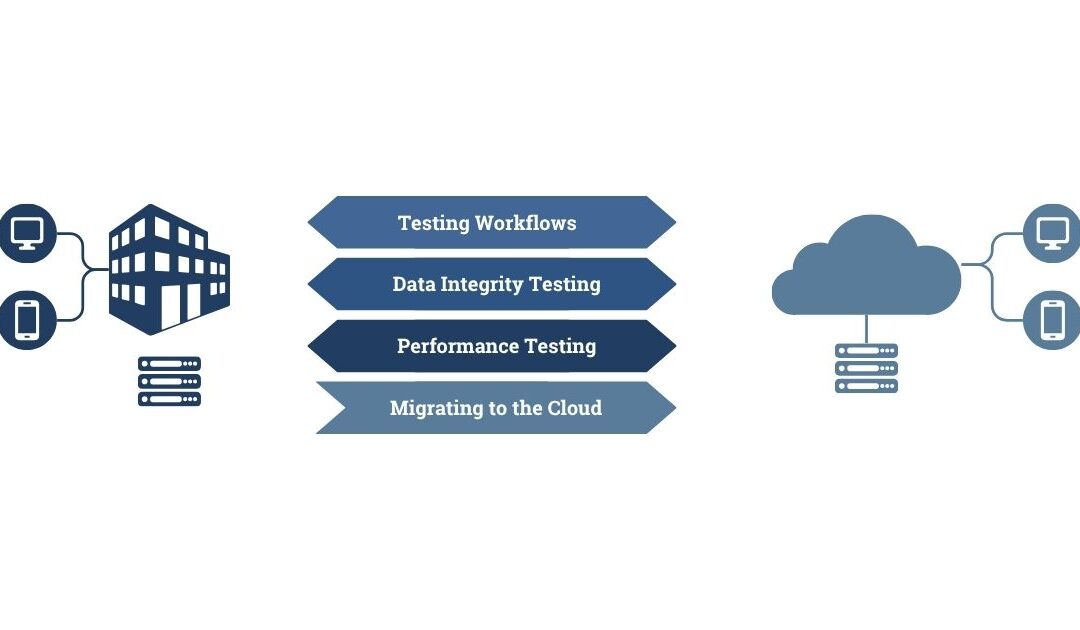SAP S/4HANA serves as the core foundation driving digital transformation for many large enterprises looking to modernize, but migration projects are notoriously complex. Gartner estimates that nearly 75% of ERP implementations fail to meet expectations on time, budget, or value delivery. A key reason for these failures is inadequate testing. Without a robust testing strategy, organizations risk data loss, system downtime, compliance violations, and costly delays. The good news is that with the right independent QA approach, enterprises can ensure smoother migrations, reduce risk, and achieve successful go-lives.
Why SAP Migrations Are High Risk
Migrating to SAP S/4HANA is not just a technical upgrade—it’s a business transformation.
Risks include:
• Data integrity issues: Errors during migration can corrupt master and transactional data.
• Compliance failures: Sensitive data must be masked or anonymized for GDPR, HIPAA, or PCI DSS compliance.
• Downtime: Extended outages during cutovers can disrupt business operations.
• Complex and custom integrations: SAP rarely operates in isolation—it must integrate with Salesforce, Oracle, or custom systems.
• Performance bottlenecks: Poorly optimized migrations can result in slow transaction processing and unhappy users.
Core Testing Areas for S/4HANA Migrations
A successful SAP migration requires a focus on multiple testing dimensions:
• Test Data Management: Using realistic, compliant data through tools like EPI-USE Labs’ Data Sync Manager (DSM).
• Test Automation: Automating regression packs to ensure functionality isn’t broken during migration.
• Performance Testing: Simulating peak loads to confirm system scalability.
• Cutover Testing: Validating migration scripts, rehearsal runs, and rollback procedures.
• Security & Compliance Testing: Ensuring role-based access controls and data protection standards are enforced.
SAP Migration Testing Framework
- A structured framework for S/4HANA migration testing typically includes:
- Assessment Phase: Identify risks, scope, and dependencies.
- Planning Phase: Build a comprehensive test strategy with timelines and responsibilities.
- Data Preparation: Mask or generate test data that mirrors production while ensuring compliance.
- Automation Setup: Implement regression and integration testing automation suites.
- Performance Baseline: Run load and stress tests to establish system benchmarks.
- Cutover Rehearsals: Simulate the go-live process to validate readiness and rollback strategies.
- Ongoing Validation: Monitor and optimize performance post-migration.
The iLAB + EPI-USE Labs Advantage
iLAB partners with EPI-USE Labs to deliver compliant, realistic test data solutions for SAP migrations. Data Sync Manager (DSM) enables test teams to refresh and mask data efficiently, ensuring migrations meet both functional and compliance requirements. This partnership, combined with iLAB’s independent SQA expertise, helps enterprises achieve faster, safer, and more reliable SAP transformations.
Real-World Scenarios
• Global Manufacturer: Faced with strict GDPR compliance requirements, a manufacturer used DSM to mask sensitive data and iLAB to validate integrations. The result was a successful cutover with zero compliance violations.
• Financial Institution: A bank migrating to S/4HANA leveraged iLAB’s automation strategy to reduce regression cycles from weeks to days, ensuring on-time delivery.
• Public Sector Agency: A government agency relied on iLAB’s independent validation to ensure accessibility and compliance during its ERP modernization initiative.
Case Study: S/4HANA Migration for a Retailer
A large public sector organization managing multi-billion-dollar assets engaged iLAB to establish a modern testing framework for its enterprise systems. iLAB implemented the iTEST© methodology, defining a full testing strategy covering data migration, performance, and regression testing. Over the years, the partnership has delivered measurable results, 100% of defects identified before production, 99.74% service level compliance, and 396 automated workflows covering critical operations. The initiative drastically reduced UAT timelines, improved software stability, and enhanced end-user satisfaction while ensuring system reliability for hundreds of thousands of active users and retirees.

Best Practices for SAP S/4HANA Migration Testing
- Engage independent QA early in the migration planning process.
- Use realistic, compliant test data for accurate validation.
- Automate regression suites to accelerate testing cycles.
- Conduct multiple cutover rehearsals to minimize go-live risk.
- Establish performance baselines to ensure scalability.
- Involve business stakeholders in UAT for validation of critical processes.
Conclusion
SAP S/4HANA migrations represent both an opportunity and a risk. Without proper testing, enterprises risk delays, compliance failures, and operational disruptions. With independent QA partners like iLAB, organizations gain the confidence to deliver migrations on time and within budget. By combining proven testing methodologies with partnerships like EPI-USE Labs and Tricentis, iLAB ensures that migrations are successful, compliant, and optimized for performance.
Frequently Asked Questions (FAQ)
Why is testing critical in SAP S/4HANA migrations?
Testing ensures data integrity, compliance, performance, and functionality throughout the migration process.
What is SAP test data masking?
It is the process of anonymizing sensitive data in test environments to ensure compliance with regulations like GDPR and HIPAA.
How do you test SAP cutovers?
Through rehearsal runs that simulate the migration, validate scripts, and confirm rollback procedures.
What are best practices for S/4HANA migration testing?
Engage QA early, automate regression packs, use compliant test data, and run performance baselines.
Can independent QA work with SAP in-house teams?
Yes, independent QA complements SAP implementation partners by focusing on quality assurance and risk reduction.
What industries benefit most from SAP migration testing?
Retail, manufacturing, finance, healthcare, and government agencies with complex ERP environments.
How does iLAB differentiate its SAP testing services?
By combining independent QA expertise with EPI-USE Labs’ DSM for compliant test data management and best-in-class SAP testing software like Tricentis and Worksoft.

